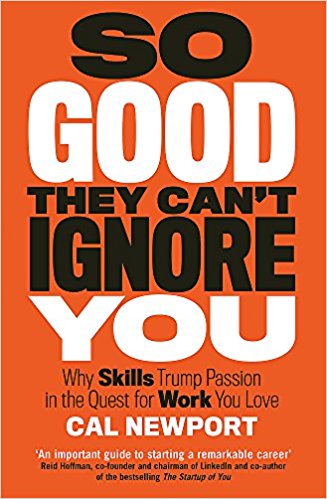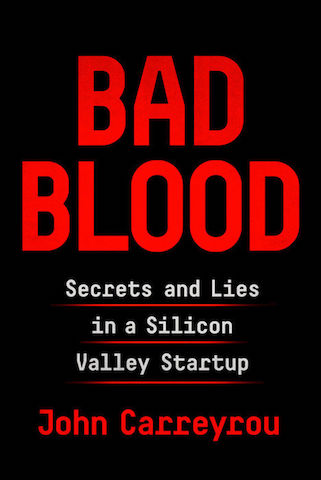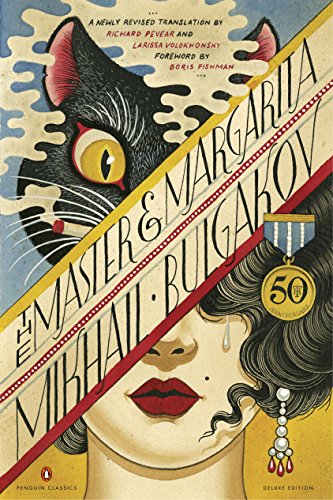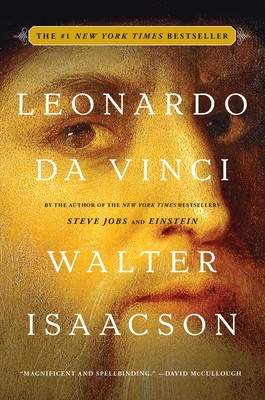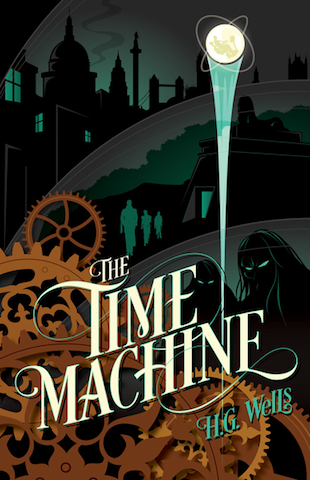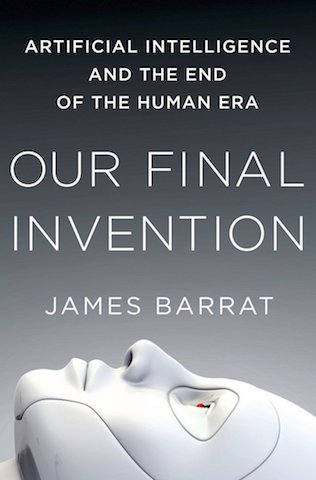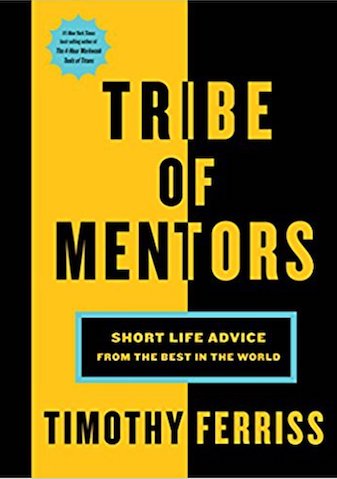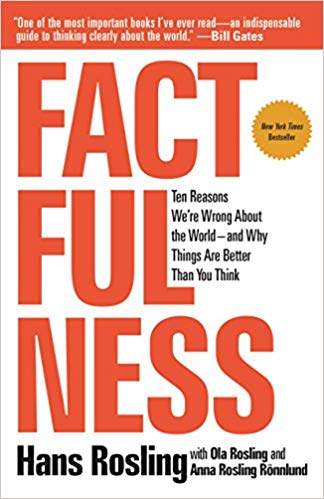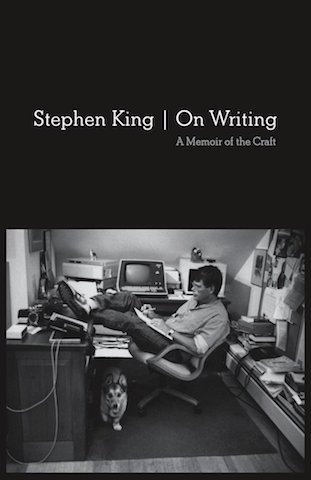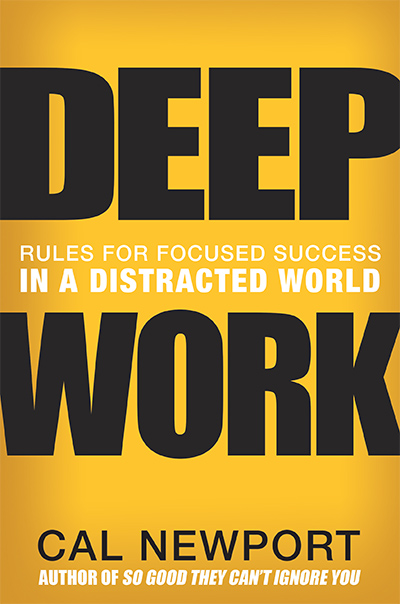3-Sentence Takeaways from My Favorite Books of 2018
At the end of every year, I reflect upon which books really moved the needle for me in some aspect of my life and work.
The ten books below are my favorites from what I read last year. For each book, I’ve shared a three-sentence summary, three-sentence takeaway, and favorite quote.
3-Sentence Summary: “Follow your passion” is flawed advice. People often fall in love with jobs where they have developed deep expertise. Pay your dues, put in the tough work, and you’ll often come to love what you do.
3-Sentence Takeaway: The best thing you can do in any job is to treat your work like a “craftsman” would. Spend more time on mastering your craft than on marketing it. True mastery is hard to hide; people will take notice.
“Regardless of what you do for a living, approach your work like a true performer.” -Cal Newport
3-Sentence Summary: Carreyrou was the WSJ journalist who first broke the story about Theranos, the Silicon Valley darling who fell from grace due to the lies and fraud of its founder, Elizabeth Holmes. Holmes was the whole package: brilliant, charismatic, and persuasive. But she was also blinded by a fierce ambition that led her to falsify medical testing, endanger the lives of patients, and fire anyone who disagreed with her.
3-Sentence Takeaway: Skepticism is good. Whenever you see something that seems too good to be true, ask tough questions and demand data. The stock market is fueled by FOMO and greed — two powerful forces we must actively resist.
“Elizabeth demanded absolute loyalty from her employees and if she sensed that she no longer had it from someone, she could turn on them in a flash.” -John Carreyrou
3-Sentence Summary: The devil and his entourage visit the Earth and begin to wreak havoc upon Russia. They murder a couple people and expose humanity’s greed, pride, and envy through a series of magic tricks and pranks. Paradoxically, they also help people along the way, including trying to reunite a woman with her lost lover.
3-Sentence Takeaway: We constantly put people in boxes (“good person,” “bad person,” “selfish,” “manipulative,” etc.). The devil and his demons definitely fall into the “bad person” box. If even they are complex creatures, what does that mean about our snap judgments of everyone around us?
“Love leaped out in front of us like a murderer in an alley leaping out of nowhere, and struck us both at once.” -Spoken by “The Master”
3-Sentence Summary: Leonardo created a dozen things you know and another hundred things you don’t. His work spanned more fields than most colleges offer in coursework: anatomy, hydraulics, optics, engineering, weaponry, geometry, theater, and aviation. Oh yeah, and he was an artist and sculptor.
3-Sentence Takeaway: Leonardo was the most curious man who ever lived. His curiosity caused him to ask questions others wouldn’t ask and see connections others wouldn’t see. Reading about Leonardo’s life reaffirmed my opinion that a “liberal arts” education is the best way to process our complex world.
“The glory of being an artist, he realized, was that reality should inform but not constrain.” -Walter Isaacson, re: Leonardo da Vinci
3-Sentence Summary: The year is A.D. 802,701, and an unnamed Time Traveller has just arrived in a mysterious world. He befriends an innocent, childlike people called the Eloi, who fear the nocturnal creatures who live below the surface of their planet (Morlocks). As he becomes more acquainted with the Eloi, the Time Traveller discovers they are uneducated, frail, and ignorant due to the fact that their society has stopped working and thinking.
3-Sentence Takeaway: Humanity’s temptation is to outsource difficult work to laborers and knowledge to machines. The natural outcome of that outsourcing is a world populated by people who are clueless, ignorant beings with mere pleasure as their aim. Is that really a better future?
“I could work at a problem for years, but to wait inactive for twenty-four hours — that is another matter.” -Spoken by “The Time Traveller”
Related article: Why I’m Now Concerned About the Rise of AI
3-Sentence Summary: This very minute, computer scientists and inventors are working to develop “artificial general intelligence” (AGI), which is AI that can perform any intellectual task a human can do. Futurists theorize that once AGI is developed, “artificial superintelligence” (ASI) will quickly follow. ASI is the idea that once we create AGI, that technology will quickly rocket to super-human proportions.
3-Sentence Takeaway: Once a new intellectual top dog takes over, you have to wonder what will happen to the former cerebral champion: us. AI is a largely unregulated field, and the possible consequences of creating and unleashing a force of this magnitude upon the world warrant careful consideration. At the very least, it’s in our best interest to familiarize ourselves with AI developments and what they could mean for society.
“We don’t hate mice or monkeys, yet we treat them cruelly. Superintelligent AI won’t have to hate us to destroy us.” -James Barrat
3-Sentence Summary: Ferriss interviewed over 100 successful people and gathered their life advice into this whopping 600-page book. The experts share stories of fear, failure, discipline, and self-reflection. Ferriss dives deep by asking questions like, “In the last five years, what new belief, behavior, or habit has most improved your life?”
3-Sentence Takeaway: No one becomes successful on accident. Every one of the 100+ experts developed routines that led to their success: meditation, exercise, reading, walks, journaling, etc. Productive lives are the product of productive days.
“There are no radical creative choices that do not carry with them an inherent risk of equally radical failure. You cannot do anything great without aggressively courting your own limits and the limits of your ideas.” -Aisha Tyler, in an interview with Timothy Ferriss
3. Factfulness by Hans Rosling w/Ola Rosling & Anna Rosling Rönnlund
3-Sentence Summary: Hans Rosling and his team spent decades compiling data on the current state of world poverty, education, and inequality. Their conclusions are robust and surprising. While we’re far from where we need to be, humanity has made massive strides in the past several decades.
3-Sentence Takeaway: We must rely on data to inform our view of the world — not myths, media, or marketing campaigns created to manipulate our emotions. When we hear facts that disagree with our preconceived notions, we tend to rush to disconfirm them. A much healthier approach would be to view mistakes with curiosity rather than embarrassment.
“It is quite relaxing being humble, because it means you can stop feeling pressured to have a view about everything, and stop feeling you must be ready to defend your views all the time.” -Hans Rosling
3-Sentence Summary: After decades of writing, hundreds of rejection slips, and dozens of bestsellers, King decided to write a memoir. He uses stories from his childhood and writing career to create a page-turning instruction manual for writers. King honestly depicts his struggles with alcohol, drugs, and a nearly fatal accident while encouraging readers to use the truth to relate to your audience.
3-Sentence Takeaway: You must be honest to your characters, your audience, and yourself. Focus on your characters rather than the plot; let the characters tell the story through you. Good writing often feels like unearthing a story that is already there.
“If you want to be a writer, you must do two things above all others: read a lot and write a lot. There’s no way around these two things that I’m aware of, no shortcut.” -Stephen King
3-Sentence Summary: We have been conditioned to check our email, slack, and social media accounts on a continuous basis. These outlets of “shallow work” are easier on our brains, so we unconsciously resort to them out of laziness. However, most of the tasks that truly matter are best served through deep work, which Newport defines as “professional activities performed in a state of distraction-free concentration that push your cognitive capabilities to their limit.”
3-Sentence Takeaway: By constantly entertaining ourselves, we gradually lose the ability to focus. We forget how to dive deep because we’re constantly diving shallow. To maintain our long-term ability to focus, we must cultivate boredom and rethink the way we work.
“Willpower is limited, and therefore the more enticing tools you have pulling at your attention, the harder it’ll be to maintain focus on something important. To master the art of deep work, therefore, you must take back control of your time and attention from the many diversions that attempt to steal them.” -Cal Newport

